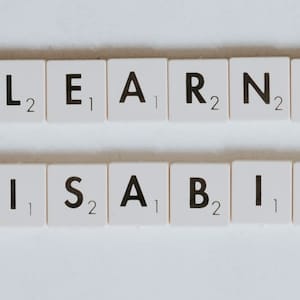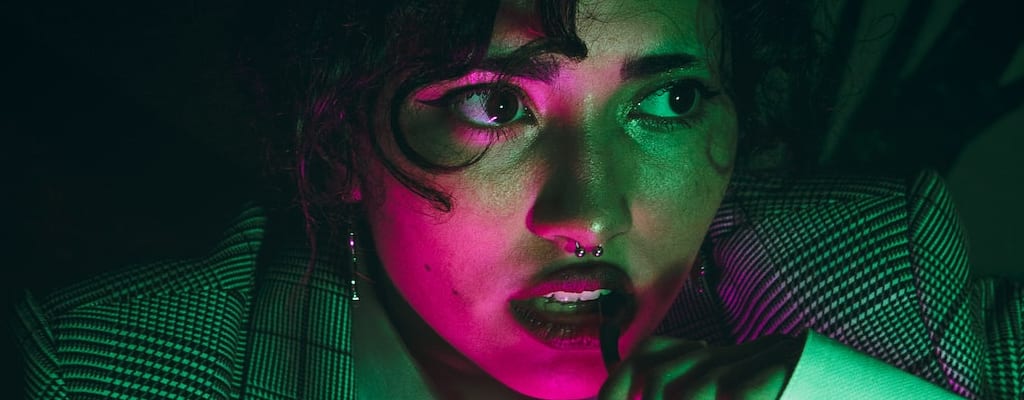dry eye: Idiom Meaning and Origin
What does ‘dry eye’ mean?
The idiom "dry eye" refers to showing no emotion or empathy in a situation that would typically elicit a reaction. It implies a lack of compassion or sympathy.

Idiom Explorer
The idiom "shed a tear" refers to the act of crying or expressing sadness by letting tears flow from one's eyes.
The idiom "lay eyes on" means to see or look at something. It implies that the person looking at something has a strong desire or interest in it.
An idiom used to describe someone who is in an emotional or mental state of extreme agitation, distress, or confusion.
"High and dry" is an idiom that means to be left in a difficult or helpless situation, especially without any assistance or support.
The idiom "heart of stone" refers to someone who is emotionally cold and unfeeling, lacking compassion or empathy.
The idiom "heart of glass" is used to describe someone who is emotionally fragile or sensitive, often referring to someone who is easily hurt or vulnerable.
The idiom "hard on the eyes" is used to describe something that is visually unappealing or difficult to look at.
The idiom "give someone the eye" means to look at someone in a way that shows interest or attraction. It is often used to describe a flirtatious or seductive look.
Eye irritation
The idiom "dry one's eyes" is closely related to "dry eye." It is often used to describe someone who is intentionally trying to suppress their emotional response, especially when dealing with a difficult or emotional situation. For example, someone might say, 'She tried to dry her eyes and put on a brave face, but I could tell she was really hurt.'
Similarly, the idiom "shed a tear" is another way to express the opposite of "dry eye." It means to cry or show emotion, often in response to something sad or touching. For instance, you might say, 'The movie was so moving that I couldn't help but shed a tear.'
An idiom that contrasts with "dry eye" is "heart of stone." This phrase is used to describe someone who is emotionally cold or unfeeling. It portrays a person who lacks empathy or the ability to connect with others on an emotional level. You might say, 'Even though I poured my heart out to him, he had a heart of stone and showed no compassion.'
Another idiom related to "dry eye" is "feel for." This expression is used to convey empathy or sympathy towards someone or something. It indicates a genuine concern or understanding of the emotions or experiences of others. For example, you might say, 'I really feel for her after everything she's been through.'
The use of these idioms in relation to "dry eye" demonstrates the various ways emotions and reactions can be described in English. Idioms provide a rich tapestry of language that allows for nuanced expressions and a deeper understanding of human emotions.
The idiom "dry eye" is often used in situations where someone is expected to show empathy or sympathy, but instead displays a lack of emotional response or concern. It portrays a person who is emotionally detached or indifferent, not displaying any signs of sadness, joy, or other emotions that would be appropriate for the given situation.
The phrase "dry eye" can be used in a variety of contexts, such as when describing someone's reaction to a heartbreaking news story or a personal loss. It encapsulates the idea of maintaining a stoic demeanor and not allowing oneself to become emotionally affected, even in the face of difficult circumstances.
Despite its negative connotations, "dry eye" does not necessarily mean that someone is heartless or lacking in compassion. Sometimes, people may choose to show a "dry eye" as a defense mechanism or coping mechanism to protect themselves from becoming too emotionally vulnerable.
The idiom "dry one's eyes" is an extension of the concept of "dry eye." It suggests an active effort to suppress or hide one's emotions, particularly tears. By using this phrase, people often imply that the person in question is strong-willed or resilient, able to overcome their emotions and carry on without displaying vulnerability.
On the other hand, "shed a tear" represents the opposite experience. It implies a release of emotions, an acknowledgement of sadness, and a willingness to openly express one's feelings. Shedding tears is seen as a natural and healthy response to certain situations, reflecting emotional depth and empathy.
The idiom "dry eye" reflects a lack of emotional response or indifference in various situations. It can be used to describe someone who is intentionally suppressing their emotions or someone who lacks empathy and compassion. Related idioms like "dry one's eyes," "shed a tear," "heart of stone," and "feel for" provide further context and understanding to the complexities of expressing emotions in English.
Example usage
Examples of how the idiom *dry eye* can be used in a sentence:
1. After watching the heartwarming reunion, there wasn't a dry eye in the room.
2. Despite the tragic news, she maintained a dry eye and stayed strong for her family.
3. The movie was so moving that even the toughest critics couldn't keep a dry eye.
More "Emotion" idioms



